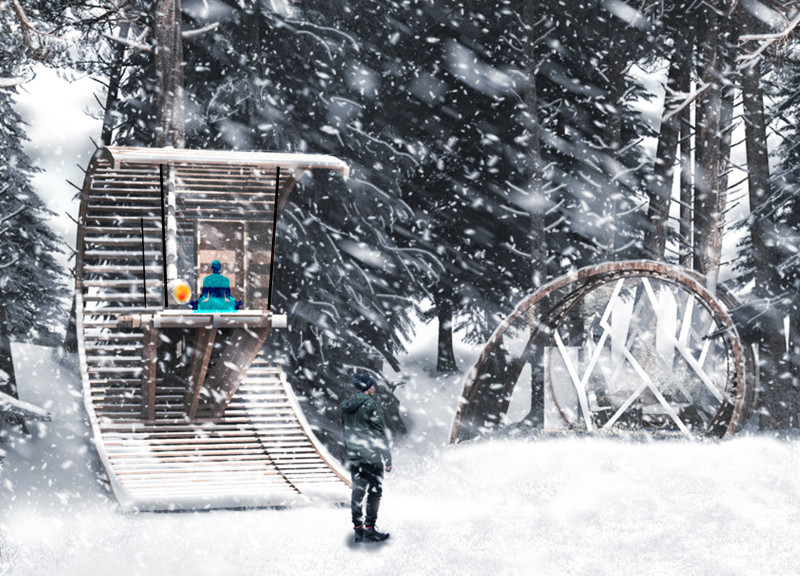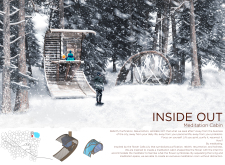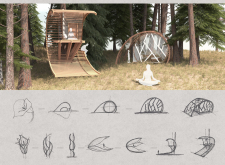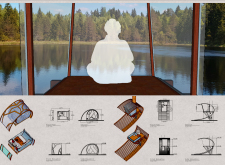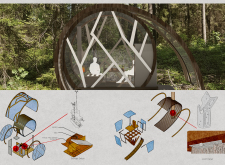5 key facts about this project
The Meditation Cabin, titled "Inside Out," serves as a retreat designed for tranquility and self-reflection. Located away from the busy city life, it provides a space for meditation and personal growth. The design draws inspiration from the Calla Lily, a flower symbolizing rebirth, purification, and holiness. The structure seeks to establish a deep connection between users and their environment.
Design Concept
The cabin’s shape is inspired by the Calla Lily, creating a form that feels both natural and inviting. This organic design enhances the experience of being in the space, allowing users to feel secure and at ease. The intention is to provide a setting where individuals can disconnect from their daily routines and engage in meaningful meditation practice.
Spatial Organization
A key feature of the design is the separation between living areas and the meditation room. This division helps to create a quiet atmosphere, encouraging concentration and mindfulness. The layout is thoughtfully arranged, focusing on making the meditation experience undisturbed while accommodating essential aspects of everyday life.
Functional Elements
Essential amenities are incorporated into the cabin, including a basin, bed, and storage for food and water. These elements are placed in a way that supports the needs of users without disrupting the calm environment. Their thoughtful integration ensures that comfort and functionality are present, alongside the main purpose of meditation.
Design Details
While the specific materials are not mentioned in the presentation, the design suggests that choices will harmonize with the natural surroundings. The focus on shape and practicality hints at a preference for finishes that resonate with nature. Large windows could provide views of the landscape, allowing natural light to fill the space. This connection to the outdoors reinforces the cabin's role as a peaceful retreat, enabling reflection away from the complexities of modern life.


